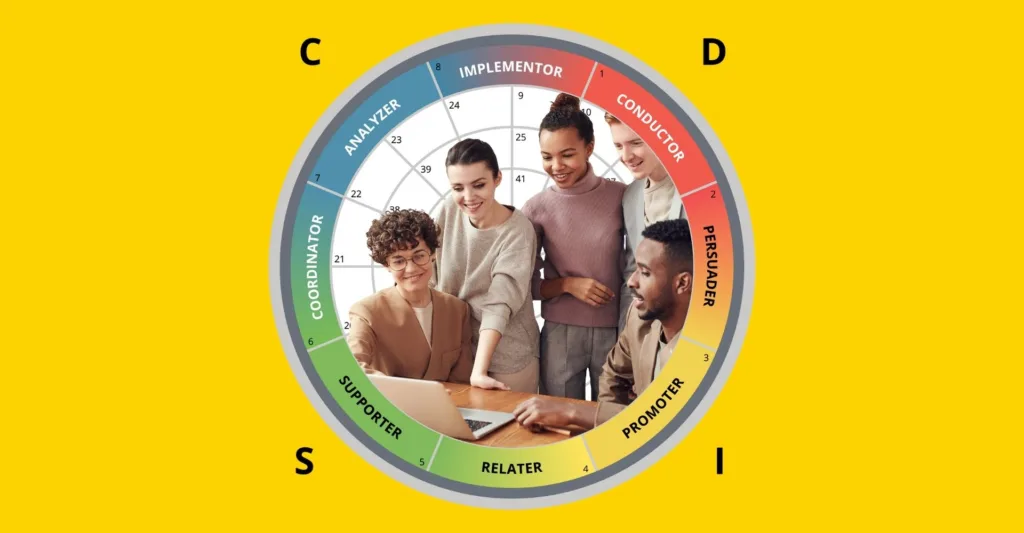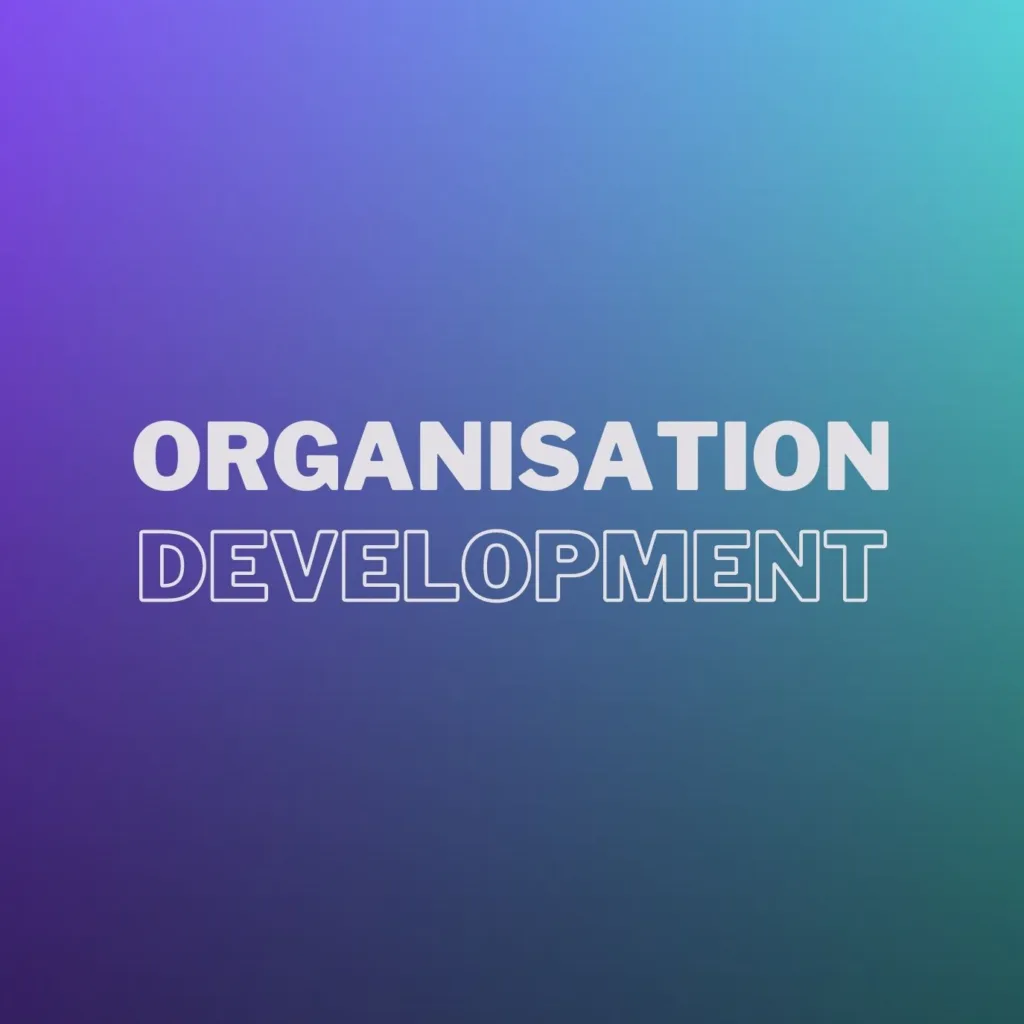Boosting Team Efficiency with DISC Profiles

Understanding DISC Profiles for Better Teamwork
DISC profiles are a highly effective method for identifying individual behavior styles and leveraging this knowledge to foster collaboration and teamwork. These profiles divide human behavior into four primary types: Dominance (D), Influence (I), Steadiness (S), and Conscientiousness (C). Each type represents a unique approach to communication, problem-solving, and interpersonal interactions, providing valuable insights into how team members may perform in various situations.
Download Sample DISC Team Report
Dominance (D) – The Driving Force
Those with a high Dominance profile exhibit assertiveness, a desire for control, and a preference for challenges. They are goal-oriented and make decisions quickly, often thriving in competitive or challenging environments. In team settings, Dominant individuals can lead projects and push the team towards achieving goals, although their direct style may sometimes appear forceful.
Influence (I) – The Communicators
Influence types are enthusiastic, persuasive, and sociable. They excel in environments where interaction and collaboration are necessary. These individuals are great at motivating others and are often the glue that keeps team morale high. Their strength lies in their ability to encourage open communication and foster a positive atmosphere within the team.
Steadiness (S) – The Reliable Backbone
Individuals who score high on Steadiness are dependable, calm, and consistent. They prefer stable environments and are excellent at supporting team activities through their methodical and systematic approach. Steady individuals are crucial for maintaining continuity and reliability within a team, especially in times of stress or change.
Conscientiousness (C) – The Detail-Oriented Planners
Those with a high Conscientiousness profile are meticulous, analytical, and quality-conscious. They adhere strictly to rules and procedures and excel in tasks that require precision and attention to detail. In a team, Conscientious individuals ensure that all aspects of a project are thoroughly planned and executed without errors.
By understanding these DISC profiles, leaders and team members can better appreciate the diverse work styles and strengths within their team. This awareness facilitates more effective collaboration, as tasks can be assigned not just based on capability but also on behavioral alignment. For instance, a Dominant individual might lead a high-stakes project, while an Influential person could handle client communications or team morale-building activities.
Effective use of DISC profiling helps in strategically leveraging the natural tendencies of team members, ensuring that everyone is in a role that maximizes their strengths and minimizes the impact of their weaknesses. This leads to not only improved individual satisfaction but also enhances team performance and cohesion, ultimately contributing to the organization’s success.
Download Sample DISC Team Report
Leveraging Dominance for Decision Making
Individuals with a high Dominance profile are characterized by their exceptional ability to make quick decisions and tackle complex problems. These traits make them invaluable in dynamic and high-stakes environments where rapid decision-making and leadership are crucial. By understanding and leveraging the strengths of those with a Dominant behavior style, organizations can significantly enhance their operational efficiency and problem-solving capabilities.
The Strength of Quick Decision-Making
Dominance in behavioral profiles indicates a person’s inclination towards assertiveness and a results-driven approach. Such individuals tend to be decisive, preferring to take the lead in situations that require fast and effective decision-making. Their ability to assess scenarios swiftly and determine a course of action is especially beneficial in time-sensitive projects or crisis management situations.
Problem-Solving Skills
Along with their decisiveness, Dominant individuals often possess a strong problem-solving aptitude. They are not deterred by challenges; instead, they see them as opportunities to innovate and implement solutions. This trait is particularly advantageous for roles that demand not only identifying the root causes of issues but also developing strategic responses quickly.
Channeling Decisive Energy into Leadership
Recognizing the natural leadership capabilities of those with a Dominance profile allows teams to place these individuals in roles where they can be most effective. Leadership positions that require quick judgment, assertiveness, and a hands-on approach are ideal for maximizing the strengths of Dominant individuals. By aligning their capabilities with the right responsibilities, teams can ensure that these leaders contribute positively to achieving organizational goals.
Impact on Team Dynamics
When Dominant profiles are effectively integrated into leadership roles, the entire team benefits from clearer direction and faster execution of tasks. These leaders can motivate others to act promptly and keep the team focused on critical objectives. However, it is important for organizations to balance these strengths with empathy and communication skills to maintain harmony and collaboration within the team.
Enhancing Organizational Outcomes
By leveraging the decisive nature of Dominant individuals, organizations can improve their responsiveness to market changes and internal challenges. This strategic utilization of natural leadership abilities leads to better management decisions, more efficient processes, and ultimately, enhanced competitiveness in the marketplace.
Understanding and leveraging the characteristics of high Dominance profiles in individuals can significantly boost a team’s decision-making efficiency and problem-solving capacity. By placing these individuals in suitable leadership roles, organizations can harness their potential to drive success and navigate complex challenges effectively.
Download Sample DISC Team Report
Influence: The Social Glue of Team Cohesion
Individuals who score high on the Influence aspect of the DISC model are pivotal in shaping the social dynamics of a team. Their ability to thrive in interactions, paired with their prowess in persuading and motivating others, marks them as essential players in any group setting. The natural charm and communication skills they possess are critical tools that can be utilized to manage both client relationships and internal team communications effectively, fostering a cohesive and productive work environment.
Enhancing Team Interactions
Influential individuals bring an energy that lightens the atmosphere and eases communication barriers. Their presence helps to promote an open environment where team members feel comfortable sharing ideas and feedback. This openness is crucial for innovation and problem-solving as it encourages diverse perspectives and collaborative thinking.
Mastering Persuasion and Motivation
Those with high Influence are not just communicators; they are also adept at persuasion and motivation. They have the unique ability to connect with others on an emotional level, which is a powerful skill in leadership. By inspiring and motivating their peers, they can drive the team towards achieving shared goals, often with greater enthusiasm and commitment.
Managing Client Relationships
In client-facing roles, the persuasive skills of influential team members are invaluable. They excel in understanding client needs and can articulate proposals in a way that aligns with those needs persuasively. Their ability to build rapport quickly and maintain ongoing relationships is crucial for client retention and satisfaction.
Smooth Operations through Effective Communication
The effectiveness of a team often hinges on the quality of its internal communications. Individuals high in Influence facilitate this by ensuring that messages are not only conveyed but also understood across the board. This clarity reduces misunderstandings and streamlines operations, making the team more efficient and less prone to errors.
Creating a Positive Workplace Culture
Beyond just operational effectiveness, Influential individuals contribute significantly to the workplace culture. Their positivity and proactive communication styles help in maintaining a pleasant and dynamic work environment, which can reduce stress and enhance job satisfaction among team members.
Cultivating Leadership Skills
As natural leaders, those with strong Influential traits can be groomed for managerial roles where their ability to guide and inspire others can be fully utilized. Providing them with opportunities to lead projects or mentor younger team members can help in honing their leadership qualities further.
The role of Influence in a team cannot be overstated. It acts as the social glue that holds a team together, ensuring smooth operations and fostering a positive, collaborative work environment. By leveraging the strengths of highly Influential individuals, organizations can enhance team cohesion, improve client relations, and create a vibrant and effective workplace.
Download Sample DISC Team Report
Steadiness (S): The Reliable Backbone
Individuals who score high on Steadiness in the DISC personality assessment exemplify the traits of dependability, calmness, and consistency. These characteristics make them an invaluable asset to any team, particularly in roles that demand reliability and a steady hand. People with a Steadiness profile thrive in stable environments and are known for their methodical, systematic approach to tasks and challenges. Their ability to maintain composure and continuity makes them crucial in managing the workflow and morale of their teams, especially during periods of stress or significant change.
Consistency in Performance
Steady individuals are the rock upon which teams can build a solid foundation. Their consistent performance and reliability ensure that projects continue to move forward smoothly, even in the face of obstacles. This consistency is not just beneficial for routine tasks; it also provides a sense of security and predictability for the entire team, which can be crucial in high-pressure situations.
Methodical Approach to Challenges
Those high in Steadiness excel in their systematic approach to work. They tackle problems methodically, carefully considering each step before taking action. This meticulous attention to detail ensures that all aspects of a project are handled efficiently and thoroughly, minimizing the likelihood of errors and oversights.
Supporting Team Activities
With their calm and supportive demeanor, Steady individuals are often seen as the backbone of team activities. They provide support and stability, helping to coordinate efforts and ensuring that all team members are aligned with the project goals. Their ability to stay focused and organized makes them excellent project managers or team leads, particularly in environments that require careful coordination and a steady hand.
Reliability in Times of Change
In times of change or uncertainty, the Steadiness trait becomes particularly important. Individuals with this profile can be counted on to maintain a level head and a consistent approach, helping to stabilize the team and guide it through transitions. Their presence can be reassuring to others, reducing anxiety and resistance to change.
Enhancing Team Dynamics
The dependable nature of Steady individuals contributes positively to team dynamics. They often act as mediators and stabilizers, ensuring that everyone works harmoniously towards common objectives. By fostering an environment of trust and reliability, they help build a cohesive team capable of overcoming challenges together.
Building a Stable Work Environment
Finally, those with a high score in Steadiness play a key role in building and maintaining a stable work environment. Their preference for structured settings and predictable routines helps in creating an atmosphere where all team members can thrive. This stability is essential for long-term success and growth, both for individuals and for the organization as a whole.
Steady individuals are the reliable backbone of any team. Their calm, dependable, and methodical nature ensures that teams have the support and stability needed to perform effectively and adapt to changes smoothly. Recognizing and utilizing the strengths of those high in Steadiness can significantly enhance the overall performance and resilience of a team.
Download Sample DISC Team Report
Conscientiousness (C): The Detail-Oriented Planners
Individuals with a high Conscientiousness profile are the quintessential planners and perfectionists of any team. Known for their meticulousness, analytical skills, and quality-conscious approach, they bring a level of precision that is critical in many professional settings. These individuals thrive on structure and are rigorous in adhering to rules and procedures, qualities that make them exceptionally reliable in tasks requiring attention to detail.
Meticulous Attention to Detail
Conscientious individuals stand out for their ability to notice and consider every small detail. This trait is invaluable in fields and roles where precision is paramount, such as finance, engineering, research, and data analysis. Their detailed approach ensures that projects are not only completed to the highest standards but are also free from errors that could lead to bigger issues down the line.
Analytical and Systematic Problem Solving
Those high in Conscientiousness excel in analytical thinking. They are able to break down complex problems into manageable parts and approach solutions systematically. This capability is especially important in strategic planning and decision-making processes where thorough analysis is necessary to assess risks and predict potential outcomes accurately.
Adherence to Rules and Procedures
Conscientious individuals are natural rule-followers. They respect established protocols and understand the importance of compliance in maintaining order and ensuring fairness in the workplace. Their strong adherence to guidelines is particularly beneficial in regulated industries where precise compliance with legal and procedural standards is critical.
Quality-Conscious Work
Quality is a non-negotiable for those with high Conscientiousness. They are not satisfied with merely completing a task; they aim to achieve the best possible results. This dedication to quality enhances the overall output of their teams and contributes to the long-term success and reputation of their organizations.
Planning and Organization
Conscientious individuals are excellent at planning. They are adept at foreseeing needs and organizing resources efficiently. Their proactive approach to project management includes setting clear goals, establishing timelines, and monitoring progress meticulously, ensuring that no aspect of a project is overlooked.
Impact on Team Dynamics
While their high standards and strict adherence to procedures can sometimes be challenging for more flexible personalities, Conscientious individuals’ commitment to excellence and reliability significantly boosts team effectiveness. They often serve as the moral compass and the organizational anchor within their teams, promoting a culture of accountability and precision.
Building a Strong Foundation for Projects
In any team, having members who are deeply committed to thorough planning and execution is invaluable. Conscientious individuals ensure that projects are not only completed efficiently but are also sustainable and successful over the long term. They instill confidence among team members and stakeholders that projects will be handled professionally and with great care.
Individuals high in Conscientiousness are essential to any team, particularly in roles that demand meticulous planning and a detailed-oriented approach. Their ability to manage complex tasks with precision and adherence to high standards ensures that their teams can rely on their work being of consistently high quality, ultimately leading to better outcomes and greater success for their organizations.
Download Sample DISC Team Report
Conclusion
Utilizing DISC profiles to enhance collaboration extends far beyond merely understanding the varied behaviors of team members; it involves strategically leveraging these insights to boost overall team efficiency and achieve greater success. By integrating DISC assessments into team management, leaders can align roles and responsibilities more effectively with the inherent strengths of each member. This alignment not only optimizes individual performance but also harmonizes their efforts towards the collective objectives of the group.
When team members operate in roles that naturally suit their behavioral tendencies, they are more engaged, motivated, and productive. For instance, those with high Dominance can take on leadership positions that require decisiveness, while those with high Influence can excel in roles that demand strong interpersonal skills and communication. Similarly, individuals with high Steadiness provide the reliable backbone needed for consistent operations, and those high in Conscientiousness handle tasks that require precision and meticulous attention to detail.
As teams grow more cohesive and members are empowered to contribute in ways that resonate with their personal strengths, the collective capacity of the team to meet challenges and achieve goals improves markedly. This strategic approach not only enhances the effectiveness of the team but also contributes to a more satisfying and dynamic work environment, ultimately driving the organization towards its goals with increased efficiency and reduced friction.
Download Sample DISC Team Report
Our Repertoire


